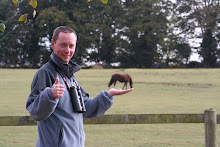Little green bee eater
I had heard about a kibbutz before but didn’t really know what to expect to find but was pleasantly surprised by the place. It was a real oasis in the desert with lots of cover and a real magnet for migrant birds.
Our main base for ringing was to be the area around the organic garden. This included areas of vegetables that were used on the kibbutz, thick areas of tamarisk around the outside and even the opportunity to put up two-shelf nets around the dung heaps for pipits and wagtails. Our ringing days started with a pre-dawn opening of the nets which we all took turns in doing with the rest of the team arriving at 6am and usually carried on until 11am although strong winds on a couple of days did cause us to close early. After a couple of days, we did erect some nets in the ‘swimming pool’ area to increase our chances.
Like everywhere else, the spring had been a bit weird and the migration had been patchy, however on our first morning I struck gold. My first bird ringed of the trip was a blackcap but I was lucky enough to be doing a net round with Gary and Bob when we caught a rufous bush chat! Both of them had done one so I got to ring it.
Our main base for ringing was to be the area around the organic garden. This included areas of vegetables that were used on the kibbutz, thick areas of tamarisk around the outside and even the opportunity to put up two-shelf nets around the dung heaps for pipits and wagtails. Our ringing days started with a pre-dawn opening of the nets which we all took turns in doing with the rest of the team arriving at 6am and usually carried on until 11am although strong winds on a couple of days did cause us to close early. After a couple of days, we did erect some nets in the ‘swimming pool’ area to increase our chances.
Like everywhere else, the spring had been a bit weird and the migration had been patchy, however on our first morning I struck gold. My first bird ringed of the trip was a blackcap but I was lucky enough to be doing a net round with Gary and Bob when we caught a rufous bush chat! Both of them had done one so I got to ring it.
Rufous bush chat
I don’t really have space to give a full species list but I will choose some of my highlights.
A bird I have always wanted to see in the hand is a wryneck and to see the amazing display they perform with their necks. I was lucky enough to ring one and extract another. A very close second as the best bird of the trip was hoopoe and I was again fortunate enough to ring one of the three birds we caught.
What a cool bird. You can't believe how much they can twist their heads around. It feels like it could twist off at any time!!
Ageing my wryneck
Hoopoe
Other highlights were extracting a female masked shrike, ringing wood, eastern olivaceous, greatreed and Balkan warblers, red rumped swallow and a male whinchat.
Over the week, we ringed 628 birds of 36 species with the top five species being blackcap (275), house sparrow (104), lesser whitethroat (60), red throated pipit (30) and thrush nightingale (25).
Even when the ringing was quiet, there was plenty to see especially overhead with large numbers of raptors on the move up the valley. Although it was difficult to concentrate fully on the migration, we did attempt to count as much as we could. The main species was steppe buzzard but during the week we recorded also recorded 1 hobby, 11 osprey, 6 marsh harrier, 71 black kite, 9 steppe eagle, 14 short toed eagle, 8 booted eagle, 1 Egyptian vulture, 344 bee eater, 1043 white stork, 129 black stork, 10 red rumped swallow, 1 alpine swift and 2 golden oriole.
It wasn’t just the birds that were fantastic but the whole experience. It was really good to learn from other ringers and trainers and pick up new hints and tips that I have been trying to use back here. I would thoroughly recommend the trip to anyone and would definitely go back again.
Wood warbler
Female masked shrike
Eastern olivaceous warbler
Tree pipit
One of two 1st summer male collared flycatchers we caught
One of our ringing sheets showing all the exciting birds we were catching
Thrush nightingale
Namaqua dove
The locals from the kibbutz were really interested in what we were doing with some of the children returning on several days
Great reed warbler
Spur winged plover
Male red backed shrike


















No comments:
Post a Comment